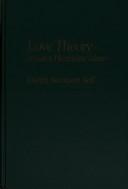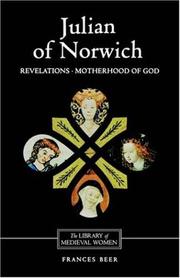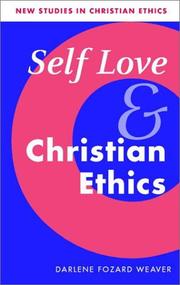| Listing 1 - 10 of 21 | << page >> |
Sort by
|
Book
ISBN: 9782841615551 2841615553 Year: 2012 Publisher: Beirut Albouraq
Abstract | Keywords | Export | Availability | Bookmark
 Loading...
Loading...Choose an application
- Reference Manager
- EndNote
- RefWorks (Direct export to RefWorks)
Hanbalites --- Love --- Toleration --- Religious aspects --- Islam --- Love - Religious aspects - Islam --- Toleration - Religious aspects - Islam

ISBN: 0873952448 9780873952446 Year: 1979 Publisher: Albany : State University of New York Press,
Abstract | Keywords | Export | Availability | Bookmark
 Loading...
Loading...Choose an application
- Reference Manager
- EndNote
- RefWorks (Direct export to RefWorks)
Hanbalites. --- Islam --- Love --- Doctrines. --- Religious aspects --- Islam. --- Hanbalites --- Doctrines --- Love - Religious aspects - Islam --- Islam - Doctrines
Book
ISBN: 0878404805 0585202567 9780585202563 9780878404803 Year: 1989 Publisher: Washington, D.C. Georgetown University Press
Abstract | Keywords | Export | Availability | Bookmark
 Loading...
Loading...Choose an application
- Reference Manager
- EndNote
- RefWorks (Direct export to RefWorks)
Love --- Religious aspects --- Christianity. --- Christianity --- History of doctrines. --- 241.513 --- 241.513 Goddelijke deugden: liefde --- Goddelijke deugden: liefde --- Affection --- Emotions --- First loves --- Friendship --- Intimacy (Psychology) --- Religious aspects&delete& --- Christianity&delete& --- History of doctrines --- Love (Theology) --- Love - Religious aspects - Christianity. --- Love - Religious aspects - Christianity - History of doctrines.
Book
ISBN: 9781138684560 1138684562 9781315543734 9780367336776 9781134851294 1315543737 0367336774 Year: 2020 Publisher: Abingdon: Routledge,
Abstract | Keywords | Export | Availability | Bookmark
 Loading...
Loading...Choose an application
- Reference Manager
- EndNote
- RefWorks (Direct export to RefWorks)
Increasingly, the modern neo-liberal world marginalises any notion of religion or spirituality, leaving little or no room for the sacred in the public sphere. While this process advances, the conservative and harmful behaviours associated with some religions and their adherents exacerbate this marginalisation by driving out those who remain religious or spiritual. And all of this is seen through the lens of social science, which seems to agree that religion remains important, if not in spiritual sense, at least as a source of folklore and a means of identification: religions remain rooted in the societies from which they emerged, and the legal systems of many of those societies emerged from religious sources, even if those societies remain unwilling to admit that fact. In the modern materialistic world of conformity, religion is less a source of guidance than a label of identification. The world therefore faces two issues. First, the decreasing level of spirituality in the 'West' widens the gap between worshippers and those who have left their faith (eg agnostics and atheists, or those who look at religion as a matter of 'picking and choosing' from a range of options). And, second, the strong connections to religion which remain in many nations, but which are often misused in the secular public sphere (both in the West and internationally). In such divided worlds, both religious and secular forces tend to lock themselves into closed groupings of 'pure truth' and in so doing increase the level of disagreement, in turn producing radicalism. In short, the modern world is divided in two ways: between religious and non-religious (although some have argued that the non-religious secular is itself a form of civil religion), and between those subscribing to divergent understandings of the same religious tradition. While hyperbolic and histrionic, the term 'culture wars' nonetheless best captures what we see happening in the public sphere today. The question emerges, then: how best to accommodate the democratic principle which posits that the majority should feel that it lives in a society of its own with the human rights principle, holding that is necessary to ensure the full protection of the minority's rights? How to balance these seemingly opposed principles? We are very familiar with the differences that appear between secular and sacred in the modern world; yet, what of the similarities amongst scriptures and laws which seek to encourage mutual understanding, cooperation and even cohabitation? Because religion itself is a source of law, a set of exhortations or commands as much as a set of rights, every major religion offers an approach to encountering 'the Other' in a positive, constructive, affirming way; and it is here that religions reveal much that they have in common. This book draws together the work of scholars engaged in exploring the possibilities for a 'utopian' world in the sense fostered by St Thomas More. The essays explore those dimensions of religious and civil law where 'love' - however that is defined by relevant texts - fosters and encourages acceptance of 'the Other' and will offer perspectives on the ways in which religious or civil/state law command one to act in the spirit of 'love.

ISBN: 0859914534 Year: 1998 Volume: *6 Publisher: Cambridge Brewer
Abstract | Keywords | Export | Availability | Bookmark
 Loading...
Loading...Choose an application
- Reference Manager
- EndNote
- RefWorks (Direct export to RefWorks)
Christian spirituality --- Christian devotional literature --- Devotieliteratuur --- Devotional literature --- Devotional literature [Christian ] --- Devotional theology --- Littérature de dévotion --- Littérature édifiante --- Livres édifiants --- Stichtende boeken --- Stichtende literatuur --- Theology [Devotional] --- English language --- Middle English, 1100-1500 --- Texts --- Mysticism - England - History - Middle Ages, 600-1500. --- Love - Religious aspects - Christianity.
Book
ISBN: 0805918213 9780805918212 Year: 1973 Publisher: Philadelphia Dorrance
Abstract | Keywords | Export | Availability | Bookmark
 Loading...
Loading...Choose an application
- Reference Manager
- EndNote
- RefWorks (Direct export to RefWorks)
Love --- Religious aspects --- Christianity --- 232.33 --- -Affection --- Emotions --- First loves --- Friendship --- Intimacy (Psychology) --- Leer van Jezus Christus --- -Christianity --- -Leer van Jezus Christus --- 232.33 Leer van Jezus Christus --- -232.33 Leer van Jezus Christus --- Affection --- Religious aspects&delete& --- Love (Theology) --- Love - Religious aspects - Christianity
Book
ISBN: 9781107175280 1107175283 9781316796931 9781316626900 1316814521 1316814130 1316815307 1316814912 1316816478 1316811794 9781316816479 1316796930 1316626903 Year: 2017 Publisher: Cambridge
Abstract | Keywords | Export | Availability | Bookmark
 Loading...
Loading...Choose an application
- Reference Manager
- EndNote
- RefWorks (Direct export to RefWorks)
"In a provocative essay, philosopher Jeffrie Murphy asks: 'what would law be like if we organized it around the value of Christian love, and if we thought about and criticized law in terms of that value?'. This book brings together leading scholars from a variety of disciplines to address that question. Scholars have given surprisingly little attention to assessing how the central Christian ethical category of love - agape - might impact the way we understand law. This book aims to fill that gap by investigating the relationship between agape and law in Scripture, theology, and jurisprudence, as well as applying these insights to contemporary debates in criminal law, tort law, elder law, immigration law, corporate law, intellectual property, and international relations. At a time when the discourse between Christian and other world views is more likely to be filled with hate than love, the implications of agape for law are crucial"-- "In a provocative essay, philosopher Jeffrie Murphy asks: "What would law be like if we organized it around the value of Christian love, and if we thought about and criticized law in terms of that value?" This book brings together leading scholars from a variety of disciplines to address that question. Scholars have given surprisingly little attention to assessing how the central Christian ethical category of love - agape - might impact the way we understand law. This book aims to fill that gap by investigating the relationship between agape and law in Scripture, theology, and jurisprudence, as well as applying these insights to contemporary debates in criminal law, tort law, elder law, immigration law, corporate law, intellectual property, and international relations. At a time when the discourse between Christian and other world views is more likely to be filled with hate than love, the implications of agape for law are crucial"--
241.65 --- 241.65 Theologische ethiek: rechtvaardigheid--(zie ook {330.86}) --- Theologische ethiek: rechtvaardigheid--(zie ook {330.86}) --- Christianity and law. --- Law --- Agape. --- Christian ethics. --- Love --- Philosophy. --- Moral and ethical aspects. --- Religious aspects --- Christianity. --- Philosophy --- Law - Philosophy --- Law - Moral and ethical aspects. --- Love - Religious aspects - Christianity. --- Law and Christianity --- Law (Theology) --- Acts, Legislative --- Enactments, Legislative --- Laws (Statutes) --- Legislative acts --- Legislative enactments --- Jurisprudence --- Legislation
Book
ISBN: 9780823281879 9780823281886 0823281876 0823281884 Year: 2019 Publisher: New York Fordham University Press
Abstract | Keywords | Export | Availability | Bookmark
 Loading...
Loading...Choose an application
- Reference Manager
- EndNote
- RefWorks (Direct export to RefWorks)
241.1*31 --- 241.1*31 Politieke theologie. Bevrijdingstheologie. Ethiek van de revolutie --- Politieke theologie. Bevrijdingstheologie. Ethiek van de revolutie --- Liberation theology --- Love --- Postcolonial theology --- Religious aspects --- Christianity --- Baldwin, James, --- Fanon, Frantz, --- Love - Religious aspects - Christianity --- Baldwin, James, - 1924-1987 --- Fanon, Frantz, - 1925-1961

ISSN: 16114914 ISBN: 3161488865 9783161488863 Year: 2006 Volume: 14 Publisher: Tübingen Mohr
Abstract | Keywords | Export | Availability | Bookmark
 Loading...
Loading...Choose an application
- Reference Manager
- EndNote
- RefWorks (Direct export to RefWorks)
Love --- Religious aspects. --- 224.61 --- 224.61 Hosea --- Hosea --- Religious aspects --- Bible. --- Hosea (Book of the Old Testament) --- Hosheʻa (Book of the Old Testament) --- Osee (Book of the Old Testament) --- Osīi︠a︡ (Book of the Old Testament) --- Criticism, interpretation, etc. --- Love - Religious aspects.

ISBN: 0521520975 0521817811 9780521817813 9780521520973 1107135087 0511177968 0511061242 0511054912 0511330359 0511613830 1280434457 1139148524 0511069707 9780511061240 9780511613838 9780511069703 9780511054914 Year: 2002 Volume: 23 Publisher: Cambridge, U.K. New York Cambridge University Press
Abstract | Keywords | Export | Availability | Bookmark
 Loading...
Loading...Choose an application
- Reference Manager
- EndNote
- RefWorks (Direct export to RefWorks)
Self love is an inescapable problem for ethics, yet much of contemporary ethics is reluctant to offer any normative moral anthropologies. Instead, secular ethics and contemporary culture promote a norm of self-realization which is subjective and uncritical. Christian ethics also fails to address this problem directly, because it tends to investigate self love within the context of conflicts between the self's interests and those of her neighbors. Self Love and Christian Ethics argues for right self love as the solution of proper self-relation that intersects with love for God and love for neighbor. Darlene Fozard Weaver explains that right self love entails a true self-understanding that is embodied in the person's concrete acts and relations. In making this argument, she calls upon ethicists to revisit ontological accounts of the self and to devote more attention to particular moral acts.
Christian ethics. --- Self-esteem --- Love --- Religious aspects --- Christianity. --- Christian ethics --- -Love --- -Ethical theology --- Moral theology --- Theology, Ethical --- Theology, Moral --- Christian life --- Christian philosophy --- Religious ethics --- Affection --- Emotions --- First loves --- Friendship --- Intimacy (Psychology) --- Self-love (Psychology) --- Self-respect --- Self-worth --- Respect for persons --- Narcissistic injuries --- -Christianity --- Ethical theology --- Religious aspects&delete& --- Christianity --- Love (Theology) --- Self-esteem - Religious aspects - Christianity. --- Love - Religious aspects - Christianity. --- Arts and Humanities --- Religion
| Listing 1 - 10 of 21 | << page >> |
Sort by
|

 Search
Search Feedback
Feedback About UniCat
About UniCat  Help
Help News
News